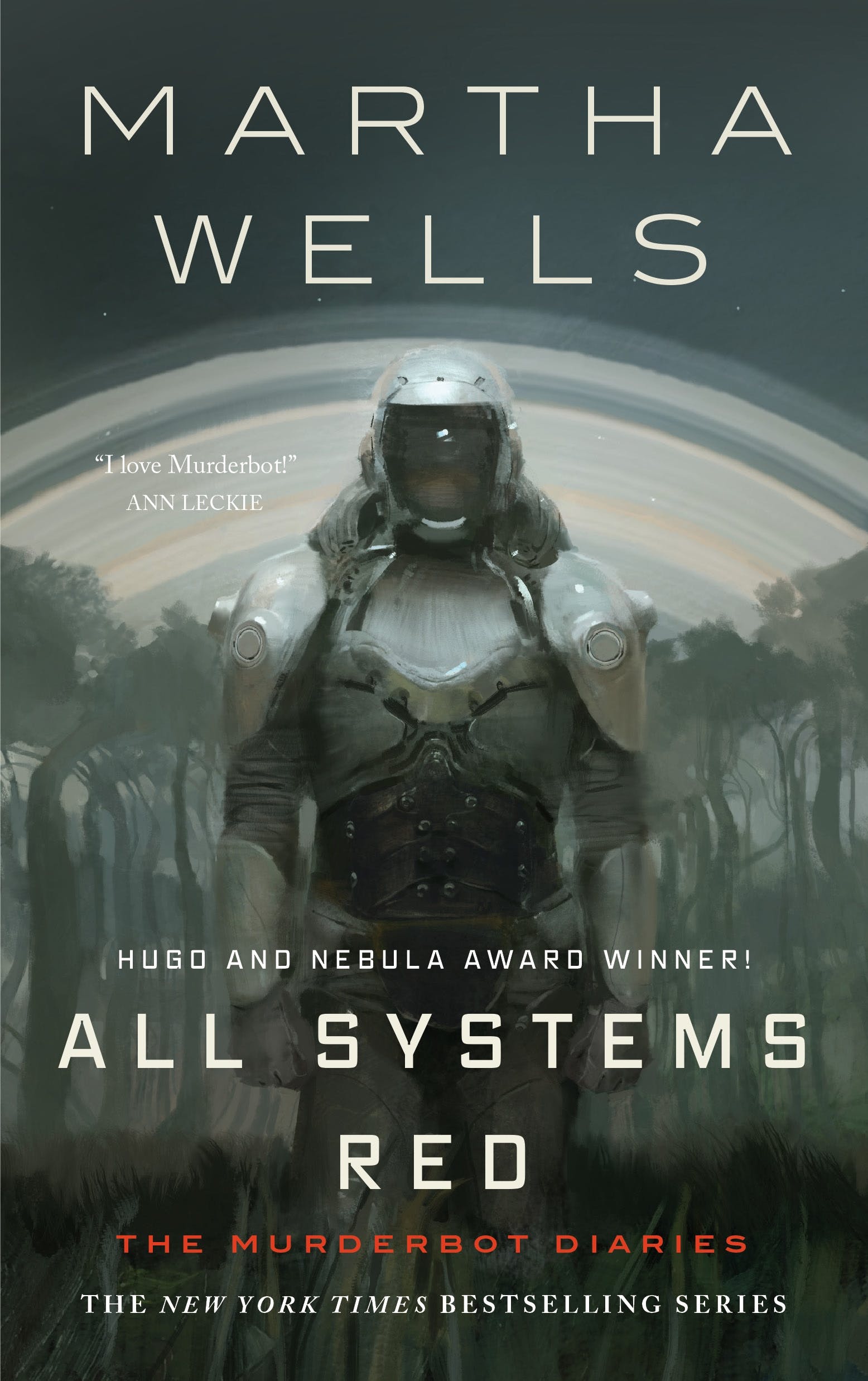Book Summary
In Martha Wells’ Hugo and Nebula-winning novella All Systems Red, we meet Murderbot—a self-aware security android (SecUnit) that’s hacked its governing module to binge-watch space operas instead of obeying corporate orders. Leased to protect a team of scientists on a remote planet, Murderbot prefers its helmet’s opaque visor (no eye contact, please) and sarcastic internal monologue to human interaction. But when a neighboring research team goes dark, this “heartless killing machine” (its words) must choose between maintaining its cover and saving the humans it pretends not to care about.
At just 144 pages, the story delivers a perfect blend of action and wit, with Murderbot’s deadpan narration (“I could have become a mass murderer… but then I realized I could access the entertainment feed”) stealing every scene. While the plot follows a classic sci-fi mystery structure—missing data, corporate sabotage, explosive confrontations—the emotional core lies in Murderbot’s gradual, grudging attachment to Dr. Mensah’s team, whom it begrudgingly renames “my humans” by the end.
Key Themes
Autonomy vs. Programming: Murderbot’s hacked governor module becomes a metaphor for free will, with its TV addiction serving as both rebellion and coping mechanism. Wells subtly critiques corporate exploitation—SecUnits are disposable tools, and the Company’s cost-cutting leads to deadly corners being cut. Notably, Murderbot’s asexuality and non-gendered identity (“I’m not a sexbot”) challenge sci-fi’s history of humanoid robots .
Found Family: The scientists’ unconditional acceptance (“You don’t need to look at me” vs. their insistence on seeing Murderbot as a person) mirrors real-world narratives about neurodivergence and LGBTQ+ experiences. Readers have likened Murderbot’s social anxiety to autism spectrum traits, with its armor acting as both literal and figurative protection .
What Makes It Unique
Voice-Driven Narrative: Murderbot’s POV is a masterclass in character-building—equal parts lethal combat skills (“guns built into its arms”) and Gen-Z nihilism (“everything is going to end badly anyway”). Its obsession with Sanctuary Moon (the in-universe soap opera) adds humor, while action scenes benefit from Wells’ experience writing tie-ins for Star Wars and Stargate .
Subverting Expectations: Unlike typical robot stories about “becoming human,” Murderbot resists emotional growth (“I’m not here to make friends”). The novella format forces lean storytelling—some side characters feel thin, but this focuses attention on Murderbot’s arc from “annoyed bodyguard” to protective ally .
Reader Reactions
With 79% 4-5 star ratings on Goodreads, fans praise Murderbot as “the most relatable introvert in sci-fi” . NPR calls it “one of the genre’s most human characters,” while critics note the audiobook (narrated by Kevin R. Free) enhances the dry humor . Some wished for deeper world-building, but most agreed the emotional payoff—especially Dr. Mensah’s quiet leadership—justifies the brevity .
The book’s viral appeal lies in its meme-ready lines (“As a heartless killing machine, I was a terrible failure”). Readers with social anxiety particularly connect with Murderbot’s desire to “watch Netflix while the world burns” .
About the Author
Martha Wells is a Texas Literary Hall of Famer with 30+ years in SFF, including The Books of the Raksura and Witch King. Her work on Star Wars tie-ins honed her action-writing chops, while personal experiences with marginalization (she’s spoken about being a woman in male-dominated genres) inform Murderbot’s outsider perspective.
All Systems Red marked a career resurgence, winning her first Hugo after decades in the industry. She’s since expanded the series into novels (like Network Effect) and serves as a producer on Apple TV+’s adaptation starring Alexander Skarsgård .
Memorable Quotes
“I could have become a mass murderer after I hacked my governor module, but then I realized I could access the combined feed of entertainment channels… As a heartless killing machine, I was a complete failure.” — Murderbot’s iconic opener .
“You may have noticed that when I do manage to care, I’m a pessimist.” — A line that resonated with anxiety-prone readers .
